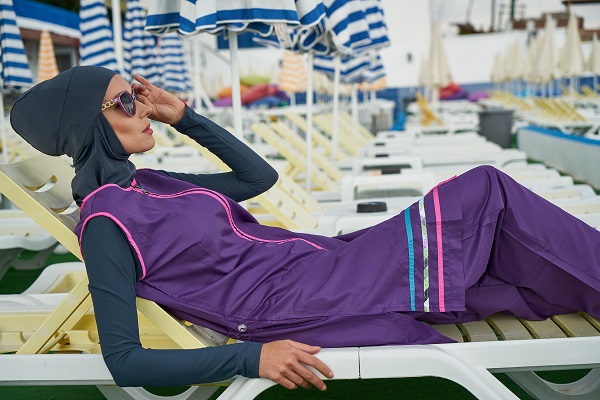
French Muslims Think Country is Trying to Control Their Faith
- By C Barnett --
- 29 Aug 2016 --

Recent terrorist attacks and the burkini ban have French Muslims believing their faith is being controlled by the country.
A series of terrorist attacks in France in the last two years have left the country in a tense, anxious state. Developments in the political and judicial arena have left many French Muslims thinking that the state is trying to control their Faith in a way that is unconstitutional and discriminatory.
French Muslims Think Country is Trying to Control Their Faith[/tweetthis]
The terrorism incidents began in January 2015, when for three days France and the entire world were shocked when 17 people died following attacks at Charlie Hebdo, a satirical magazine. A policewoman and a Jewish Supermarket were also targeted in those attacks. In November 2015, a further 130 people were killed in highly synchronized attacks on the Stade de France, restaurants, bars and the Bataclan concert hall.
More terrorist attacks in 2016, including the one in Nice where 86 people died while celebrating Bastille Day have only served to heighten tensions and provoke a backlash against Muslims and Islam. This is due to the fact that terrorists claim to be doing these acts on behalf of Islam, something that Muslims vehemently deny.
Since 2015, about 20 mosques around the country have been forced to close on National Security reasons. A recent ban on burkinis (which is basically a swimsuit with sleeves, leggings and a hood) has also compounded the issue and left many French Muslims thinking deeply about their situation.
Marwan Muhammed, the director of the Collective Against Islamophobia commented, “The authorities need to stop chasing people for being Muslim, for having a beard or for being religiously involved. This is not a sign of risk. This is a sign of religiosity.” The head of the French Council of the Muslim Faith (CFCM), Anouar Kbibech remarked, “We invite our fellow French citizens to avoid making links (with terrorism) and equally we invite our fellow Muslim citizens to pay attention to their activities and not exacerbate the issue and make things more complicated.”
There has been uproar in France following the burkini ban, instituted by at least five towns in France including Cannes and Villeneuve-Loubet. With several politicians openly supporting the ban, Nicolas Cadene, the spokesman for the government’s Observatory on Laicite commented that the principle of French Laicite, a negative right that provides for freedom from the religious claims of others is being used “for partisan ends and to stigmatize people.” The mayor of Cannes, David Lisnar labeled the burkini as a “symbol for Islamic extremism.” Prime Minister Manuel Valls also supported the burkini ban, insisting that burkinis were part of “the enslavement of women.”
The ban on burkinis has had a paradoxical effect, with sales of the swimsuit spiking all over the world. According to a burkini designer, Aheda Zanetti, purchases have been made by both Muslim and Non-Muslim women. Zanetti, a Lebanese-born Australian fashion designer said, “It’s just been so hectic… I can tell you that online on Sunday, we received 60 orders [for burkinis] – all of them non-Muslim.”
The ban on burkinis in France (recent cases of police enforcement in Cannes and Nice) is part of an ongoing… https://t.co/T63I9N5FOl
— Addison Rose Vincent (@AddieVincent92) August 24, 2016
In Canada, Prime Minister Justin Trudeau ruled out the possibility of a burkini ban in his country, stating that, “In Canada, can we speak of acceptance, openness, friendship, understanding? It is about where we are going and what we are going through every day in our diverse and rich communities.”



















